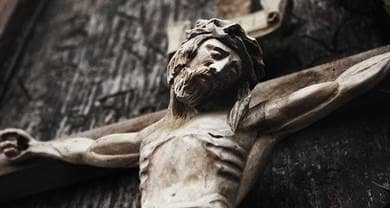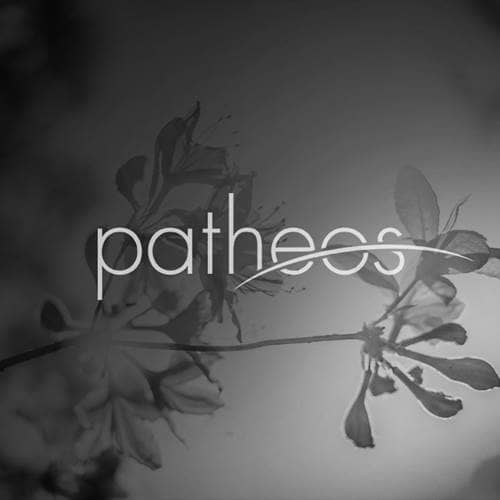- Trending:
- Forgiveness
- |
- Resurrection
- |
- Joy
- |
- Feminism
- |
- Afterlife

RELIGION LIBRARY
Roman Catholicism
Suffering and the Problem of Evil
Suffering and evil are distinct and yet interrelated concepts in Catholic thinking. Ultimately, the fall of humanity is the cause of all suffering. Humans were created to exist in harmony with God, but instead they chose the path of disobedience, which brought suffering and death into the world. Catholics believe that while humans have the free choice to disobey, they can never find true joy and peace except in harmony with and obedience to God. As St. Augustine says so eloquently in his Confessions, "Our hearts find no rest until they rest in You."
In the Catholic view, human action is not the only cause of suffering: while God as the source of all goodness can never act in a manner that is evil, God may send suffering to open the hearts of those who have refused to hear God's call. In their pride and complacency, humans think that they need neither God nor the grace God offers, but tragedy, sorrow, and suffering can lead to transformation. Because this world is prelude and preparation for the afterlife, even a life filled with suffering is useful if it causes the person to turn to God and accept divine grace. This, Catholics believe, is a central fact of existence: that God uses everything, even suffering, to call people back to God.
The Catholic Church teaches that with their limited vision humans do not have the ability to see all the consequences of actions and events, and something they recognize as evil may also be the impetus for great good to occur: God is able to bring good even out of the evil that humans commit. When Catholics look at a troubled history that eventually led to a better situation, they recognize the hand of God drawing the whole process to a happy conclusion. In fact, this is the lesson of the felix culpa, the happy fault: human sin brought suffering into the world, but it also paved the way for God's incarnation to occur. The evil remains evil, but the good that God causes to flow from it is greater still. According to St. Augustine, even this perception of good coming from evil is the result of a limited view: from the cosmic, eternal perspective of God, everything is ultimately good because God uses everything in the service of goodness.
Catholics distinguish between physical evil and moral evil. Physical evil is simply a lack of perfection: all of creation moves toward ultimate perfection in the coming kingdom of God, but nothing on earth yet achieves it. Moral evil is the greater issue, one that is all-pervasive in this world. It is moral evil to which the Church's Catechism refers when it says, "There is not a single aspect of the Christian message that is not in part an answer to the question of evil" (309). Yet moral evil, too, is simply a lack of perfection-in this case, perfection of the human will.
Just as God has not created a world of physical perfection, saving that for the coming kingdom, so too God has not created a world of moral perfection in which people do not have the ability to sin. St. Augustine explained that God is the source of everything that exists, and everything God created is good. Evil is the absence of good, so therefore it must not have real existence. It is instead a lack, the absence of good. God created humanity, Lucifer, and the rebellious angels as beings of goodness, but also endowed them with the freedom to choose their paths. They chose to turn away from the good, and in doing so their capacity for goodness was diminished. It is this lack, this diminishment, that is evil. Augustine's formulation has proven to be the most influential understanding of evil in the western Christian tradition.
When they speak of evil, Catholics often make reference to Lucifer, or the devil, who is called the Father of Lies. Lucifer's power lies solely in his ability to persuade humans to do his will, just as he persuaded the rebellious angels to follow him, and the result is just as disastrous. Lucifer is mirage and subterfuge, creating the illusion that following him will lead to happiness and light when all that will result is chaos and evil. He therefore causes evil, but only with the willing participation of humans utilizing their free will to choose diminishment of the good. He may be called the Evil One, but Catholic belief does not grant him the power to execute the evil he envisions. His power is very limited, his bid for predominance in heaven already thwarted, his final defeat already destined, just as the end of suffering and evil in the world to come is already destined.
Study Questions:
1. Where does suffering originate from?
2. Why do Catholics believe suffering is held in tension to faith?
3. How is evil distinguished?
4. What is the role of Lucifer in perpetuating evil?










